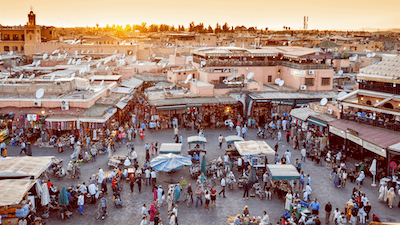Green hydrogen partnerships to support African infrastructure
The European Commission presented its REPowerEU plan in response to the hardships and global energy market disruption caused by Russia’s invasion of Ukraine in May 2022. Part of a wider External Energy Strategy (EES), the plan sets out objectives in the areas of energy-saving, diversification of supply and the accelerated roll-out of RE.
The wider strategy is not only focused on the need to restructure the European energy supply. The EU is also ‘committed to leading and speeding-up the global green transition and supporting its international partners in the processes’. REPowerEU references the Global Gateway strategy to support the EU’s neighbours, which includes the Africa-EU Investment Package of up to EUR 150 billion of investment in 2021-2027 (see EU-Africa: the Green Energy Initiative).
African partners, particularly those in the north of the continent, are especially relevant to the energy diversification plans. While an important part of this strategy is to establish alternative sources of ‘transition fuels’, such as pipeline natural gas and liquefied natural gas (LNG), green hydrogen (GH2) and other fuels of the future also play a central role.
The first of the EES’s key actions is ‘to conclude hydrogen partner¬ships, notably in the EU’s neighbourhood and Africa, to facilitate the import of 10 million tonnes of hydrogen by 2030, and the development of local hydrogen markets. Three major hydrogen import corridors are envisaged, one of which is in the southern Mediterranean. With this in mind, the Europe¬an Commission is working on a Mediterranean Green Hydrogen Partnership (MGHP), within which it expects that the EU-Egypt Hydrogen Partnership will be “the first stepping stone for broader renewable hydrogen co-operation between Europe, Africa and the Gulf”.
The European Commission has also started work on an EU-Morocco Green Partnership and the strategy also noted that the renewable hydrogen sectors of both South Africa and Namibia had attracted the interest of EU industry.
According to a statement issued following European Commission President Ursula von der Leyen’s meeting with Egyptian President Abdel Fattah El Sisi in Cairo in June 2022, the EU/Egypt MGHP partnership will ‘pro¬mote investments in renewable electricity generation, strengthening and extension of electricity grids, including trans-Mediterranean interconnectors, the production of renewables and low-carbon hydrogen, and the construction of storage, transport and distribution infrastructure.’

